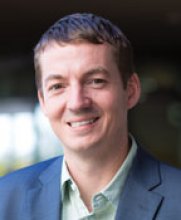“Why Do Defaults Affect Behavior? Experimental Evidence from Afghanistan,” Michael Callen, UC San Diego

BEHAVIORAL SCIENCES WORKSHOP
Abstract: We report on an experiment examining why default options impact behavior. Working with one of the largest private firms in Afghanistan, we randomly assigned each of 949 employees to different variants of a new default savings account. Employees assigned a default contribution rate of 5% are 40 percentage points more likely to contribute than employees assigned to a default contribution rate of zero; to achieve this effect through financial incentives alone would require a 50% match from the employer. Our design permits us to rule out several common explanations for default effects, including employer endorsement, employee inattention, and a lack of awareness about how to switch. Instead, we find evidence that the default effect is driven largely by a combination of present-biased preferences and the cognitive cost of calculating alternate savings scenarios. Default assignment also causes employees to develop savings habits that outlive our experiment: they are more likely to believe that saving is important, less likely to report being too financially constrained to save, and more likely to make an active decision to save at the end of our trial.
Michael Callen is an Assistant Professor of Economics and Strategic Management at the UC San Diego Rady School of Management and a Faculty Research Fellow at the National Bureau for Economic Research. He is also affiliated with the Center for Economic Policy Research (CEPR), the Bureau for Research and Economic Analysis of Development (BREAD), Empirical Studies of Conflict (ESOC), the Center for Effective Global Action (CEGA), Evidence for Policy Design (EPoD), and the Jameel Poverty Action Lab (J-PAL).Prior to UCSD, he was an Assistant Professor at the Harvard Kennedy School and at the University of California Los Angeles. He completed his PhD in economics at the University of California, San Diego and his BSc at the London School of Economics. His current research focuses on political economy, development economics, and behavioral economics.
The Behavioral Sciences Workshop is held jointly between the Yale departments of Economics, Political Science, Psychology, and the School of Management (SOM). The workshop is cosponsored by the Center for the Study of American Politics (CSAP) and the School of Management’s International Center for Finance and Whitebox Advisors fund. Lunch will be served.